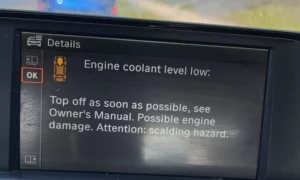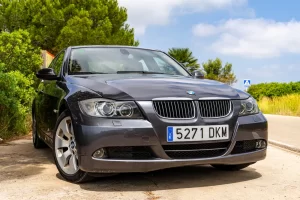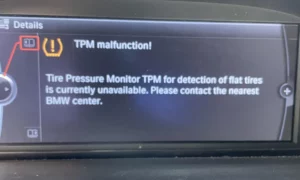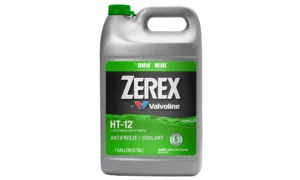That sleek BMW in your driveway delivers unmatched driving pleasure, but let’s face it—when something goes wrong, your wallet feels the pain. As your factory warranty approaches its expiration date, you’re probably wondering if shelling out thousands for extended coverage makes financial sense.
I’ve analyzed real owner experiences, dealership data, and repair costs to help you make this decision without the sales pressure. Let’s cut through the marketing speak and look at what actually matters when considering a BMW extended warranty.
What Does a BMW Extended Warranty Actually Cover?
BMW’s Extended Service Contract (ESC) comes in three distinct flavors, each with different levels of protection:
| Plan | Coverage | Best For |
|---|---|---|
| Platinum | Comprehensive bumper-to-bumper (excluding wear items) | Peace of mind, newer models |
| Gold | Major systems only (engine, transmission, electrical) | Middle-ground protection |
| Powertrain Plus | Basic drivetrain coverage | Budget option |
The Platinum plan stands out as the most popular choice among BMW owners because it covers virtually everything except maintenance items like brake pads and fluids.
What’s crucial to understand is that BMW requires all warranty repairs to be performed at authorized dealerships using genuine parts. This ensures quality but also means you can’t save money by using your local independent BMW specialist.
How Much Does a BMW Extended Warranty Cost?
Be prepared for sticker shock. BMW extended warranties typically range from $3,500 to $6,000 depending on your model, mileage, and the dealership’s pricing strategy.
For example, a Platinum plan for a low-mileage X5 with seven years of coverage might cost between $4,000 and $5,000 if you find a dealer offering competitive rates. These prices aren’t fixed—there’s significant room for negotiation.
Pro tip: Dealership prices vary dramatically. Some owners report saving $1,500-$2,000 by shopping around and purchasing from high-volume dealers rather than their local showroom.
BMW Repair Costs: The Hard Truth
To determine if an extended warranty makes financial sense, you need to understand what BMW repairs actually cost without coverage:
- Oil change: $120-$180
- Brake pads: $300-$600
- Water pump replacement: $1,500-$2,000
- Suspension components: $2,500-$4,000
- Steering rack: $10,000
- Complete engine replacement: Up to $30,000
While routine maintenance is manageable, major component failures can be financially devastating. A single major repair can often exceed the cost of the extended warranty itself, immediately justifying your investment.
When a BMW Extended Warranty Makes the Most Sense
For High-Performance Models
If you drive an M-series vehicle or any model with a twin-turbo engine, an extended warranty can be invaluable. These high-performance vehicles put more stress on components and typically experience more costly repairs.
Owners of models like the M550i and X5 frequently report warranties covering between $8,500 and $30,000 in repairs, including coolant line replacements and engine overhauls. In these cases, the warranty pays for itself several times over.
For Long-Term Owners
Planning to keep your BMW beyond the standard warranty period? The extended coverage becomes more valuable the longer you own the vehicle. Modern BMWs are loaded with complex electronic systems and engine technology that become increasingly expensive to repair as they age.
For Those Who Prize Peace of Mind
There’s an intangible value to knowing you won’t face unexpected four-figure repair bills. For many owners, this alone justifies the cost—especially if you’re not mechanically inclined or don’t have a trusted independent BMW specialist nearby.
When to Skip the BMW Extended Warranty
If You Lease or Replace Cars Frequently
If you typically replace your vehicle every 2-3 years, the extended warranty likely won’t provide good value. You’ll be trading in the car before the most expensive repairs typically occur.
If You Have a Lower-Risk Model
Not all BMWs are created equal when it comes to reliability. Generally, the 3 Series and X1 models tend to be more reliable and require fewer major repairs during their first 5-7 years compared to more complex models.
If You’re Comfortable with a Repair Fund
Some financially disciplined owners prefer to self-insure by setting aside the equivalent of the warranty cost in a dedicated repair fund. This gives you flexibility to choose where repairs are performed and potentially save money if major issues don’t arise.
Third-Party Warranties vs. BMW’s Official Coverage
Third-party warranty providers like CARCHEX and Endurance typically offer lower premiums ($2,500-$4,000) than BMW’s official extended warranty. However, these savings come with important trade-offs:
The Drawbacks of Third-Party Coverage
- Stricter maintenance requirements: These providers often deny claims if you can’t produce documentation that you’ve followed BMW’s precise maintenance schedule.
- Non-genuine parts: Unlike BMW’s OEM-only policy, third-party warranties frequently authorize cheaper, remanufactured parts.
- Claim denial issues: Owner forums are filled with stories of frustrating claim denials and lengthy arbitration processes.
For many BMW owners, the peace of mind that comes with factory backing outweighs the cost savings of third-party options. When a complex electrical issue strikes at 2 a.m. on a road trip, you’ll want the confidence that your warranty will be honored without pushback.
The CPO Alternative: A Middle-Ground Option
BMW’s Certified Pre-Owned program extends the factory warranty by 1 year with unlimited miles, which already surpasses what competitors like Audi and Mercedes-Benz offer. For an additional $1,500-$3,000, you can further extend this CPO coverage to 7 years or 100,000 miles.
This option represents excellent value for those buying slightly used BMWs, combining lower purchase price with comprehensive coverage.
Maximizing Your Extended Warranty Value
Negotiate Aggressively
Warranty prices aren’t set in stone. Many owners report securing discounts of 20-30% simply by shopping quotes from multiple dealerships. Online BMW forums regularly identify dealerships known for competitive warranty pricing.
Purchase Before Factory Warranty Expires
Lock in your extended coverage while your factory warranty is still active. Waiting until after expiration can raise prices significantly and may require a mechanical inspection.
Consider Warranty Transferability for Resale Value
BMW Extended Service Contracts can be transferred to subsequent owners, potentially increasing your car’s resale value by 5-10%. This feature is particularly valuable in the luxury market, where buyers place a premium on peace of mind.
Real BMW Owner Experiences
The value of extended warranties becomes clearer when examining real-world cases:
- One X5 owner reported covering $14,000 in repairs with a $3,800 warranty, including a failed water pump, electrical issues, and suspension components.
- An M4 driver’s $4,200 extended warranty paid for a $9,000 engine repair plus $3,500 in miscellaneous electrical fixes.
- A 5 Series owner never needed to use their $5,000 warranty during the coverage period, effectively losing that investment.
These varied experiences highlight why this decision is so personal—your specific model, driving habits, and risk tolerance all play crucial roles.
Making Your Decision: A Strategic Approach
Rather than making a purely emotional decision, take these steps:
- Research your specific model’s reliability history using owner forums and sites like Consumer Affairs.
- Get multiple warranty quotes from different dealerships—pricing can vary by thousands of dollars.
- Calculate your break-even point by estimating potential repair costs during the extended coverage period.
- Consider your ownership timeline and whether you’ll keep the vehicle long enough to benefit from extended coverage.
- Assess your risk tolerance and how you’d handle an unexpected $5,000+ repair bill.
The Bottom Line: Value Depends on Your Specific Situation
For owners of high-performance or complex BMW models who plan to keep their vehicles beyond the factory warranty period, an extended warranty often provides both financial value and peace of mind. The math tends to work in your favor when a single major repair can cost more than the entire warranty.
However, for those with more reliable models who don’t mind setting aside repair funds or who replace their vehicles frequently, self-insuring might be the more economical choice.
The extended warranty decision ultimately comes down to how you balance risk, ownership plans, and your specific BMW model—not what a salesperson tells you is “essential protection.”













